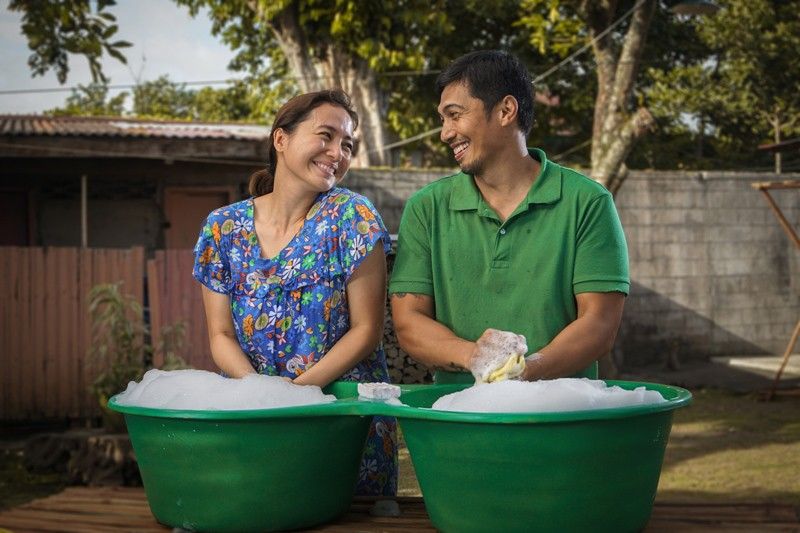#iLabaYu campaign highlights ‘care work is teamwork’

MANILA, Philippines — Caring for people and domestic work, such as cooking, cleaning, washing and ironing clothes, is essential for personal wellbeing and survival.
These tasks are also known as “unpaid care work,” which refers to all unpaid services provided within a household for its members, including care of persons, domestic chores and voluntary community work.
According to a survey by Oxfam with 541 respondents from Eastern Samar, Leyte, Cotabato, Maguindanao, and Sultan Kudarat, women spend an average of 4.5 to 6.5 hours a day on care work like cooking, ironing, and laundry. An overwhelming 11 to 12 hours daily is devoted to childcare.
Across the world, including the Philippines, many women and girls have missed out on life-changing opportunities for education, employment, political engagement and personal wellbeing because of negative stereotyping and unchallenged expectations of what they can and cannot do.
These long hours spent inside the house doing chores also has direct, negative impacts on the health and well-being of women and girls.
With this in mind, the Women’s Economic Empowerment and Care (WE-Care) Project, implemented by Oxfam and its local partners in the Philippines, sheds light on this overlooked issue with #iLabaYu.
#iLabaYu is a campaign encouraging men to share in household chores, particularly laundry and contribute to raising a future generation of Filipinos that live out the true meaning of respect and equality beginning at home.
The WE-Care Project aims to shift the way society views unpaid care work and provide solutions to the heavy and unequal responsibilities for housework and care that Filipino women face.
“It is important to recognize the value of care work and shift negative attitudes toward gender roles; reduce hours spent on care tasks; redistribute care work responsibilities equitably across all sectors in society; and ensure carers are represented in decision- and policy-making,” said Maria Rosario Felizco, country director of Oxfam in the Philippines.
WE-Care local teams in Eastern Visayas and Mindanao are currently at the forefront of developing advocacy with cities and municipalities for better water and energy infrastructure, elder and childcare, and promoting communications to change gender roles.
“Ang pagkukusa sa gawaing bahay ay hindi lamang nanatiling responsibilidad ng mga nasa loob ng bahay kundi responsibilidad rin ito ng ating gobyerno at ng iba’t ibang organisasyon at sektor sa lipunan,’’ said Amparo Miciano, executive director of PKKK, a national coalition of rural women, and a partner in the WE-Care Project.
Last year, Tacloban City and Salcedo town in Eastern Visayas have enacted ordinances on unpaid care work, which means that this issue will be included in their planning and budgeting, and will improve women's access to safe water and childcare centers.
To learn more about WE-Care and the #ILABAYU campaign, visit http://bit.ly/iLabaYu and https://www.facebook.com/OxfamsaPilipinas.




















